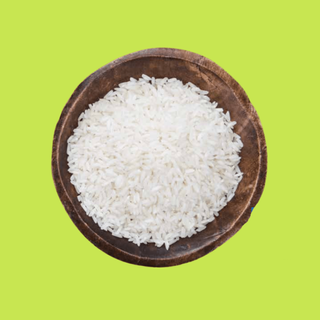
Why Some People Are More Sensitive Than Others
Becoming easily overwhelmed by physical and emotional stimuli is a personality trait for an estimated 20% of the general population.

“Those warnings at the start of the news about how some viewers may find the following scenes upsetting? Well, I’m that viewer,” Kate Townshend, 34, told The Telegraph. Townshend is a self-described Highly Sensitive Person, a personality type thought to characterize 20% of the general population.
Who is a Highly Sensitive Person?
A man or woman, adult or child, could be an HSP. An HSP is someone who has a more sensitive central nervous system, making them highly attuned to physical, emotional, or social stimuli. In other words, they experience sharply or intensely what comes across as subtle sensations to others. This increased sensitivity is known as sensory processing sensitivity (SPS), and higher SPS is the defining trait that causes hypersensitivity, as identified by psychologists Elaine Aron and Arthur Aron, who coined the term “Highly Sensitive Person” in 1997.
Experts note that HSPs “process stimuli cognitively deeper” than non-HSPs, and also recognize and respond to more stimuli in their environments. “This may result in taking more time to observe and react slower,” in addition to making them “less prone to act when confronted with a new situation and have more aversion towards risk-taking,” researchers write.
The Arons’ argue that HSPs make up 20% of the general human population. But, it is neither a disorder, nor a diagnosable condition. Instead, it is a personality trait, one that, reportedly, biologists have found in more than 100 species, including fruit flies, fish, dogs, cats, and of course, primates.
Related on The Swaddle:
All You Need to Know About Maladaptive Daydreaming
What characterizes a Highly Sensitive Person?
Hypersensitivity involves “a tendency to ‘pause to check’ in novel situations, greater sensitivity to subtle stimuli, and the engagement of deeper cognitive processing strategies for employing coping actions, all of which is driven by heightened emotional reactivity, both positive and negative.”
HSPs may have heightened awareness of their own physicality, thoughts, and emotions, especially negative ones; of others’ judgments, emotions, actions, or behaviors; and of their environment. Their response to these stimuli can manifest into physical symptoms of stress.
For a precise and thorough identification, the Arons developed a 27-point personality questionnaire, known as the Highly Sensitive Persons’ Scale (which can be accessed here), to help individuals identify themselves as HSPs. Some of the trait identifiers covered by the questionnaire include:
- Other people’s moods affect me.
- I find myself needing to withdraw during busy days, into bed or into a darkened room or any place where I can have some privacy and relief from stimulation.
- I am easily overwhelmed by things like bright lights, strong smells, coarse fabrics, or sirens close by.
- I get rattled when I have a lot to do in a short amount of time.
- I make it a high priority to arrange my life to avoid upsetting or overwhelming situations.
- When I was a child, my parents or teachers seemed to see me as sensitive or shy.
An individual may be an HSP if they check more than 14 items on the scale as true. However, experts note that even though there are as many men as women who are HSPs, and the questionnaire is worded in a gender-neutral manner, women tend to score higher on it than men do.
The Arons’ research also found that HSPs cry more easily and readily than others around them, with the situations ranging from pressure at work, interpersonal confrontations, simply being in a doctor’s office, or watching or witnessing something that touches them, though it may not affect the people around them.
Shorter, 12-point versions of the checklist are available as well. These are often used for research, while the 27-point scale is the most comprehensive for identification.
Related on The Swaddle:
The Inability to Experience Pleasure Is Called Anhedonia. But Why Does It Occur?
Can hypersensitivity be treated?
There is no treatment for hypersensitivity since it is considered a personality trait, and not a disorder. “If you are an HSP you shouldn’t want to ‘cure’ yourself. It’s who you are,” Ted Zeff, psychologist, told The Telegraph.
But, the sensory overload also comes with its own set of challenges in one’s day-to-day life. “Throughout my life, I’ve been deeply affected by bright lights, strong scents, itchy clothing, and loud noises. … Since I have intensified reactions to my surroundings, I have difficulty multitasking and can become stressed when too much is going on at once,” Juli Fraga, psychologist, wrote in Healthline, adding: “Looking back, my experiences as an HSP profoundly affected my friendships, romantic relationships, and even led me to become a psychologist.”
HSPs experience higher levels of stress than others, and research has found they are also more prone to burnouts because they get easily overwhelmed. Further, due to the everyday interpersonal challenges posed by hypersensitivity, the trait is associated with anxiety and depression. “The good news is highly sensitive adults tend to respond well to therapy because they’re so in touch with their emotions,” Elaine Aron noted.
The lack of awareness of the trait can make dealing with hypersensitivity challenging for a lot of HSPs. Elaine Aron claims that if an HSP is constantly told to “pull themselves together,” or told off for crying while they’re growing up, they may develop self-doubt, and become depressed or anxious as adults. But, raising them in a supportive environment, with an awareness of their overactive nervous systems, can prevent that.
Devrupa Rakshit is an Associate Editor at The Swaddle. She is a lawyer by education, a poet by accident, a painter by shaukh, and autistic by birth. You can find her on Instagram @devruparakshit.
Related


All Rice Must Be Fortified With Iron, B12 Within Next 3 Years: Centre
